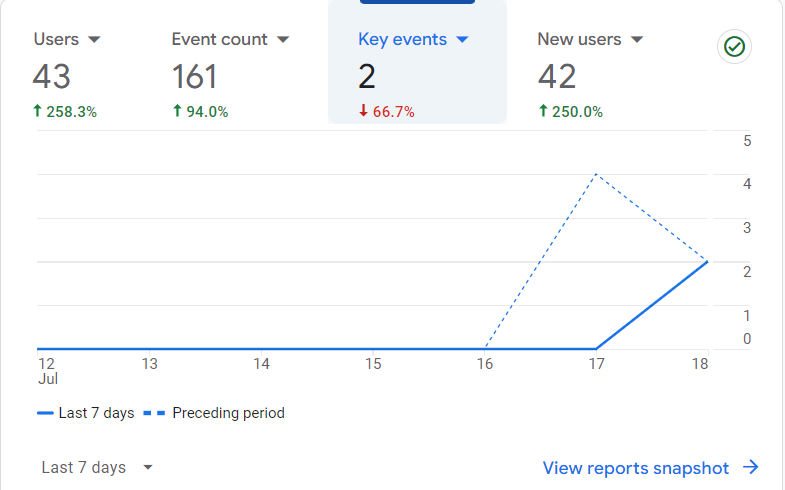Understanding Global Success Marketing
Definition of Global Success Marketing
Global success marketing includes strategies and practices that allow businesses to promote their products or services in international markets effectively. It features a comprehensive understanding of varied markets, cultural suggestions, and consumer behaviors within those markets. Consequently, successful global marketing goes beyond simply expanding; it forms a connected brand presence with audiences worldwide while adapting to local tastes, preferences, and regulations.
Importance in Business Today
Global success marketing has become a prerequisite for any business starting up and seeking continued growth in the interdependent modern world. At a time of technological and communications developments, what was once a very hard task to reach audiences worldwide is now easier than ever. At the same time, competition has become even tighter; therefore, companies must break through the noise by differentiating themselves and creating meaningful connections with consumers across regions. Effective global marketing can lead to increased brand recognition, higher sales, and long-term business success.
Elements of Global Success Marketing
Market Research and Analysis
Understanding Global Markets—Why It Is Important
Market research is the backbone of any successful global marketing strategy. It helps the business to understand how markets vary so that it can modernize its approaches where necessary to meet local requirements and tastes. This comprises an analysis of consumer demographics, purchasing behavior, and cultural trends. Accurate market insight allows a business to make decisions in a more informed way; thus, it reduces the risks involved when entering new markets.
Tools and Techniques in Market Research
Several tools and techniques assist in global market research. This includes primary data from various paid surveys, reviews, and feedback programs, as well as focus groups, which provide firsthand information on consumer perception and behavior. Tools for digital analytics, like Google Analytics and social media analytics, yield valuable data about online engagement and trends. Other than this, organizations can also make use of several market research reports across industries by reputed firms to get an overall understanding of the trends and forecasts for those respective industries.

Sensitivity to Culture and Localization
Tweaking Marketing Strategies for Different Cultures
Cultural sensitivity is another necessary factor when it comes to international marketing. What works in one country may not communicate well enough in another because of the differences in culture. For this reason, businesses will have to adapt their marketing strategies to the local customs, values, and preferences. This process of localization entails changing language, images, message content, etc. to suit the respective market for which a campaign is targeted.
Examples of Successful Localization
One of the best examples of localization is McDonald’s. This giant in fast food adapts its menu based on preferences and dietary restrictions within every region visited. For instance, it introduced lots of vegetarian options and avoided beef items from its menu to humor the local taste buds in India. In Japan, items such as the Teriyaki Burger make provisions for Japanese tastes. Such efforts at localization help in keeping a global presence for McDonald’s while keeping the respect for cultural diversity intact.
Branding and Global Identity
Building a Strong Global Brand
Creating a global brand identity is the basic element for global success. Setting up a brand image and message relevant across different markets, yet consistent in its own right, therefore means that building trust and loyalty with consumers makes entering new markets easier.
Balancing Global Identity with Local Relevance
A global brand identity will conflict with one that is relevant to the local culture. Companies must, therefore, defend the core values and brand message but still be able to adapt these marketing strategies to suit local tastes. Coca-Cola, for instance, vets its brand identity worldwide; it uses the same brand name everywhere but adapts advertisements concerning the culture and traditions of those countries. For example, in India, the jingles always focus on family and society, while in the United States, they would harp on being yourself and leading an adventurous life.
Digital Marketing Strategies
Utilizing Digital Channels for Global Reach
Digital marketing can nicely be applied as a potential tool for addressing globe-spanning audiences. That makes it possible for a business to reach its customers, whichever part of the world they may be in, through search engines, social media, and email. Companies are allowed to modify their messages for certain demographics and regions with appropriate targeting.
SEO, Social Media, and Content Marketing
SEO (Search Engine Optimization) is very crucial for improving any business website’s visibility on search results and driving organic traffic to the websites. It helps a business to attract audiences from all over the world through its customized explanation optimized by proper keywords and generating quality content. Through social media platforms like Facebook, Instagram, and LinkedIn, one gets to interact directly with customers; companies can nurture relations and loyalty toward customers. Businesses educate and inform their target audience through content marketing using blogs, videos, and infographics, thus commanding authority and trust. of the website to help you in SEO we have Semrush which is very good in terms of search engine optimization.
Influencer and Partnership Marketing
Local Influencers and Partners
Influencer marketing is an assured way of giving you loads of local audiences and engagement. When partnered with, the influencers who have the strongest following in each target market give businesses credibility and broader reach. These are the very influencers who can create relevant content that will resonate with their followers by promoting the products and services in relatable ways.
Case Studies of Successful Collaborations
For instance, the Swedish brand H&M cooperated with local influencers across countries. For instance, at H&M, a market is smacked with its product offering thanks to various fashion bloggers and social media personalities. Likewise, beauty brand Glossier has been associated with several micro-influencers all over the world in building a devoted customer base for the brand by their authentic voice.
Data-Driven Marketing
Using Data to Inform Global Strategies
Data-driven marketing refers to a process for running marketing strategies based on data analytic insights. The plan involves the analysis of data regarding customer behavior and preference, which forms trends in driving informed decisions and tailor-made marketing toward specific markets. This will help the company identify opportunities, measure performance, and improve its ROI.
Analytics Tools and Techniques
There are many tools and techniques for data-driven marketing among others. Tools like Google Analytics give insights about website traffic and user behavior, while social media analytics tools like Hootsuite and Sprout Social keep track of your engagement and performance on social platforms. With CRM systems like Salesforce, businesses can manage their customer interactions and look at sales data. These will enable companies to gain actionable insights and fine-tune their marketing strategies these.
Strategies for Global Success
Entry Strategies to New Markets
Market Entry Options
Market entry into new markets requires careful planning. There are, of course, several options for market entry, such as exporting, licensing, franchising, joint ventures, and wholly-owned subsidiaries. In each case, there are different advantages and problems to be faced by the business.
Evaluating Market Potential and Risks
One has to evaluate the potential and risk in a new market before market entry. This means conducting thorough market research to get information on economic, political, and cultural understanding. Companies should analyze their competitors and any barriers that impede easy entry into the market. Well-defined market entry strategies help business organizations reduce risks and increase opportunities for success.
Customer Experience and Engagement
Bringing Seamless Customer Experiences across the Globe
This will help to deliver a seamless customer experience for building trust and establishing a loyal relationship. Products and services offered should fulfill the needs and expectations of customers from various markets through uniform quality, customized service, and support efficient.
Strategies That Engage and Retain Customers Globally
Engagement and retention of customers are a continuous cycle, improved by innovation. Companies can show customers that they care through loyalty programs, personalized marketing, and great customer service. Improvement in products and services is also improved by collecting and acting on customer feedback.
Innovation and Adaptability
Staying Ahead of Market Trends
Staying ahead of the changing market trends contributes to maintaining a competitive advantage. Businesses should constantly look out and analyze trends in their respective industry and adjust their strategy accordingly; this means investing in research and development, keeping up-to-date with technology, and remaining open-minded.
Importance of Innovation in Global Marketing
In essence, innovation is the road to global success. On this ground, innovative companies may establish distinct value propositions that set them apart from their competition. For instance, innovative electric cars and clean-solution products at Tesla Inc. have carved out a niche for the company in the global automotive market. Innovation enables businesses to respond to constantly evolving customer needs, hence fuelling long-term growth.
Supply Chain and Distribution
Manage Global Supply Chains
Effective supply chain management is the epitome of delivering products efficiently across the globe. A company has to link production with transport and various logistics so that products may be availed on time. Key activities include supplier relationship management, inventory management, and distribution network optimization.
Logistical Challenges
Other challenges that could hamper a global supply chain include delayed shipments, customs restrictions, and increased transport. Companies will need to devise ways through which to handle such challenges by diversifying suppliers, investing in technology, and building contingency plans for their production processes. For example, Amazon recently managed to deliver products reliably in record time throughout the globe due to its huge logistic network reinforced by investment in automation.
Challenges and Their Solutions
Legal and Regulatory Compliance
Navigating International Laws and Regulations
The most tricky part of global marketing concerns the complexities of navigating international laws and regulations. Businesses are required to comply with local legislation about advertising, consumer protection, data privacy, and adherence to intellectual property laws. Failure to do this may lead to legal penalties against the company and also damage to its reputation.
Ensuring Compliance in Global Markets
It becomes imperative in light of pending regulatory changes and to effect strict compliance programs. Companies can seek the services of legal practitioners or joint-venture partners to fully understand local regulations and comply accordingly. For example, companies must ensure GDPR compliance when operating in European Union countries, which implies strict data protection measures and transparency when handling their data.
Economic and Political Factors
Managing Economic and Political Risks
These are major potential business risks at a global level: economic and political instability. Changes in exchange rates, trade policies, or even a political shake-up could have positive effects on operations or profitability. Companies have to devise ways of mitigating their risk through market diversification, buying insurance covers, and appropriate provisions for financial reserves.
Strategies for Stability in Volatile Markets
However, companies can be very proactive about their risk management to be able to remain stable in an unpredictable marketplace. To be specific, this may consist of periodic risk assessments, formation of liaison with local stakeholders, and keeping one’s ears open to geopolitical signals for possible nods to leave. Companies can help themselves ride out such challenges by preparing and being adaptable enough to maintain stability.
Ethical and Sustainable Marketing
Promoting Sustainability and Ethical Practices
The emerging paradigms in global marketplaces today are sustainability and ethical practices. Consumers are ever more conscious of the environment and social issues and would expect businesses to be responsible. Businesses can promote sustainability by adopting eco-friendly practices, reducing waste, and sourcing materials ethically.
Examples of Ethical Global Marketing Campaigns
One great example would be Patagonia. The brand sincerely focuses on sustainability and ethics. This brand of outdoor clothing makes strong mentions in their ad of buying used products and conservation campaigns. Similarly, The Body Shop creates much of its brand relevance through ethical sourcing and non-animal-tested products, turning itself into a social responsibility issue.
Case Studies
Successful Global Marketing Campaigns
Case Study: Global Branding of Coca-Cola
Global branding strategy has contributed to the success of Coca-Cola within foreign markets. It provides it with the ability to be homogeneous in presenting the brand image but still keep its realness adapted to every local culture. In the “Share a Coke” campaign, Coca-Cola personalized their bottles with popular names. This created a sense of connection and engagement worldwide. This kind of innovation increased sales and built brand loyalty.
Case Study: Nike’s “Just Do It” Campaign
Another case of powerful global marketing involves Nike’s “Just Do It” campaign. The power packed in the message itself, namely “determination and perseverance,” was enough to communicate directly to people from other cultures. Localization of advertisements in their adaptations to local values and trends—yet with a core, empowering message, has encouraged Nike to build a strong brand globally and connect audiences across borders.
Lessons Learned from Failures
Case Study: Cultural Missteps in Marketing
The 2017 Pepsi ad with Kendall Jenner faced backlash for how it minimized both social justice movements. That outcome showed that the ability to remain true to culture, sensitivity in dissent—and, generally, all social problems—demonstrate the importance of detailed cultural studies and taking diverse opinions in their formulation to avoid some missteps in business.
Why Some Campaigns Fail
Failed campaigns can always teach businesses some valuable lessons. Some common reasons for campaign failure include a lack of cultural awareness, poor market research, or contradicting brand values. And that is how companies learn from their mistakes to improve their marketing strategies and avoid the same pitfalls over again.
Conclusion
The Future of Global Success Marketing
The future for marketing, in terms of worldwide success, is full, and filled with possibilities. Artificial intelligence, virtual reality, and blockchain are emerging technologies that will continue to revolutionize marketing strategies. Companies must beat trends, understand the change involved in global marketing, and most importantly, change their Strategies from time to time to achieve success in the global marketplace.
Importance of Continuous Learning/Adaptation
The road to global success is through continuous learning and adaptation. Only through constant education, research, and development does any business have a chance at being competitive for survival. Further, the change towards instilling innovation and agility into their culture will better position companies to handle the complexities involved with global marketing and achieve long-term growth.
FAQs
What is Global Success Marketing?
Global success marketing involves strategies and practices that help businesses promote their products and services across international markets effectively by making a brand with a local preference-adaptive presence.
Why is global marketing important?
Global marketing is a requisite for scaling and continuing growth in a connected world; it helps businesses increase brand recognition, gain new customers, and ensure higher sales.
How will businesses effectively do market research for global marketing?
This can be obtained through surveys, focus groups, digital analytics tools, and research reports in the markets about consumer behaviors, preferences, and trends.
What is localization in marketing?
Localization involves the adaptation of marketing strategies to cultural and regional preferences, including language, images, and messages within different markets.
What are some global marketing campaigns that worked?
For instance, Coca-Cola’s campaign “Share a Coke” or Nike’s campaign “Just Do It” are examples of brands that brilliantly adapted their message across the world with a consistent brand identity.
Thank you for reading make sure to subscribe for more!!! 🤗🤗🤗🤗











